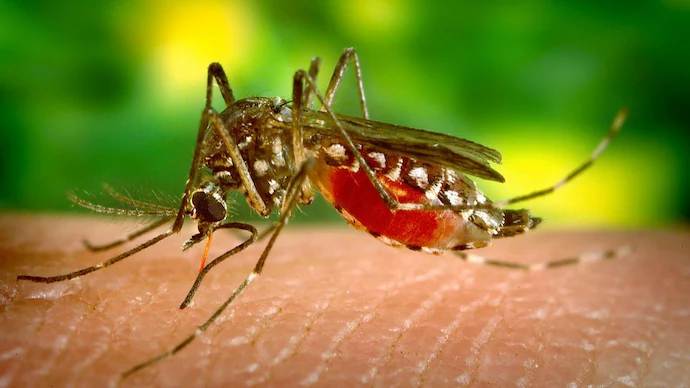As summer winds down in Massachusetts, a new and concerning threat has emerged: more information on certain viruses that are transmitted through mosquito bites and enjoy a relatively low occurrence rate but highly fatal viruses such as Eastern equine encephalitis (EEE). These viruses have resulted in enhanced scrutiny and prompt response in several communities in the state. This particular article focuses on the present state of affairs, the threat that these viruses brought, and the steps taken to safeguard the public.
What Is Eastern Equine Encephalitis (EEE)?
Eastern equine encephalitis is a communicable disease in humans, which is picked by mosquitoes from infected horses and other animals. The virus mainly exists in circulation between birds and mosquitoes but occasionally transmits between horses and man. Although EEE is uncommon, its impact can be devastating:
- High Fatality Rate: It has a mortality rate of 33 percent – 70 percent.
- Long-Term Consequences: That is why, post-operation is accompanied by long-standing neurological disorders.
- Geographic Presence: EEE is found mostly in the Atlantic and Gulf Coast states and Massachusetts is among the states at risk.
Overview of Human Infections in the United States: The incidence of human cases in the United States is comparatively very low with a rate of approximately 11 cases per year. However, the danger of the disease is high, a single case may cause several people to be concerned and act accordingly.
Recent Developments in Massachusetts
Mentioning the summer period, it is important to state that in August 2024, the number of cases and the risk of getting infected with EEE increased significantly in the state of Massachusetts. Three counties in the state have been confirmed positive for EEE, and the first human case of the virus this year was reported on August 16, the first in two years. This particular patient is in his eighties and was found to have been infected from Worcester County and this called for the mobilization of response from the public health staff.
Measures and Prevention Taken in Public Health Response
In response to the increased risk, the Massachusetts Department of Public Health, in collaboration with the Department of Agricultural Resources, has implemented several preventive measures: In response to the increased risk, the Massachusetts Department of Public Health, in collaboration with the Department of Agricultural Resources, has implemented several preventive measures:
- Aerial Spraying: The section identified as having high-risk characteristics is Plymouth County in which efforts at aerial spraying are being made to control the vector.
- Truck-Mounted Spraying: Other spraying postures are currently being done in other areas of Worcester County.
- Residents are also being urged to take personal precautions to protect themselves from mosquito bites: Residents are also being urged to take personal precautions to protect themselves from mosquito bites:
- Use Insect Repellent: The use of repellent cream and lotion that contain DEET, picaridin, or the oil of lemon eucalyptus is highly advised.
- Wear Protective Clothing: There is also the issue of wearing long sleeves and pants mainly when the mosquitoes are about and this is during the dusk and the dawn.
The Broader Impact
West Nile Virus is an arbovirus, a type of virus that is transmitted by arthropods or insects. Specifically, it is a flavivirus hence its name West Nile.
Although EEE is an important concern in Massachusetts, it is not the only virus transmitted through the mosquito. The West Nile virus, which is an acute disease that is spread by the mosquito has also been identified in some parts of Massachusetts this year. Key points about the West Nile virus include:
- High-Risk Areas: Currently, at least eight municipalities are located in the high-risk zone of mosquitoes infected with the West Nile virus including Boston.
- Health Impact: Though not as lethal as EEE, West Nile virus is still a dangerous disease that affects people; especially the elderly or those with a compromised immune system.
- Symptoms: The disease may present with as mild flu-like manifestations to severe neurological complications including encephalitis or meningitis.
As with EEE, people are advised to take measures that will minimize contact with the mosquito to be safe from the disease.








